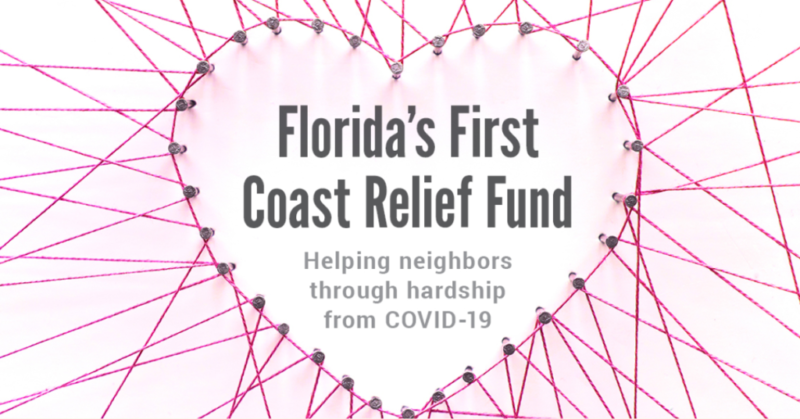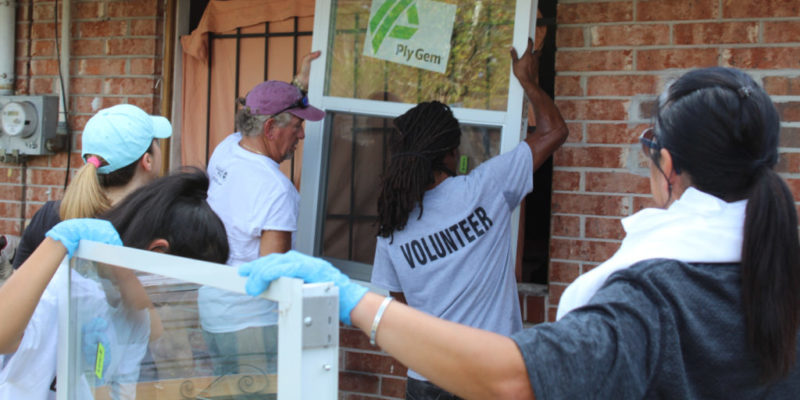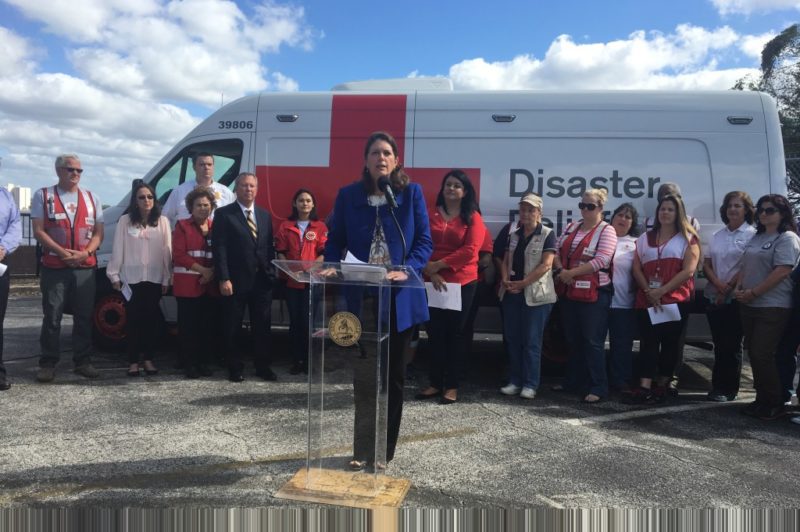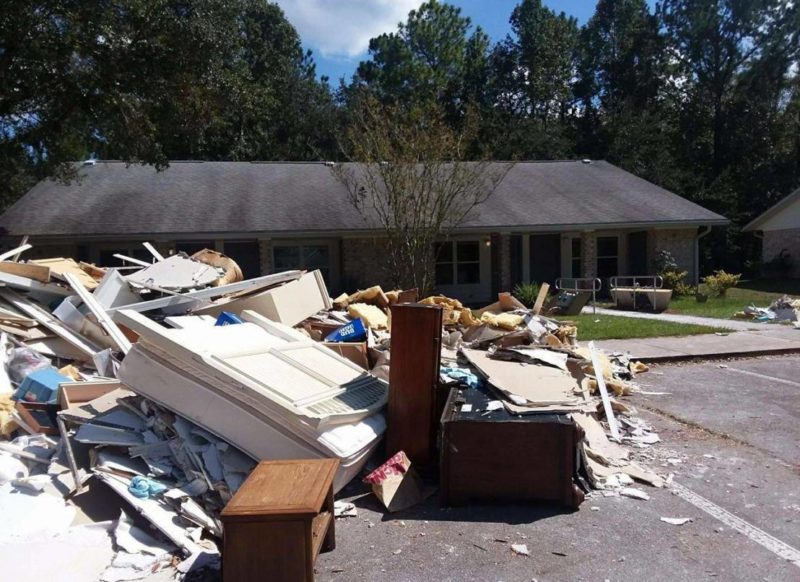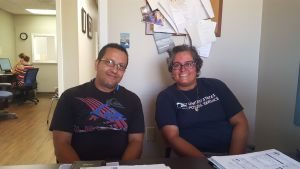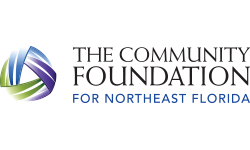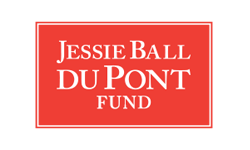Jacksonville, Fla. (March 16, 2020) – Every day, more than half a million people in Northeast Florida – almost 40 percent of our region’s population – struggle to afford basic necessities. The COVID-19 pandemic is dramatically amplifying these existing needs and creating unprecedented demands on nonprofits.
To help our neighbors most affected by COVID-19 disruption, The Community Foundation for Northeast Florida, Jessie Ball duPont Fund, Jewish Federation and Foundation of Northeast Florida, United Way of Northeast Florida and United Way of St. Johns County are re-activating Florida’s First Coast Relief Fund. The fund will assist organizations helping those in Northeast Florida affected by this public health crisis. As with past relief efforts, the fund will be overseen by a grants committee and administered by United Way of Northeast Florida.
Florida’s First Coast Relief Fund was created in 2016 to help nonprofit organizations serve individuals and families in need during a community crisis. The Relief Fund for COVID-19 will provide much-needed resources to struggling families by supporting local organizations who deliver essential human services to residents disproportionately burdened by this public health crisis.
Fund partners urge you to join this coalition of community partners who are ready to rapidly deploy resources to community-based organizations on the front lines of the COVID-19 outbreak in Northeast Florida.
“As we’ve seen with recent hurricanes, unprecedented community challenges like COVID-19 can and will have devastating long-term effects on struggling families,” said Michelle Braun, president and CEO of United Way of Northeast Florida. “We are coordinating closely with local nonprofits, community partners, and local and state government officials to identify immediate priorities.”
Nonprofits are lean organizations that funnel a vast majority of resources into providing direct service. Many of their fundraising activities are suspended and employees impacted. Many are not equipped with the technology to help them work remotely. Many also lack operating funds or reserves needed to respond to heightened demand for services and lower revenue.
Critical needs are rapidly emerging, and they will continue to evolve. The Relief Fund will provide flexible resources to nonprofits in our region responding to urgent needs resulting from COVID-19 disruption. The initial focus areas will likely include:
- Provision of emergency food and supplies and other needs of people disproportionately impacted by this disruption
- Financial relief and child-care support for those impacted by work and school closures
- Technology support for nonprofits to enable remote work and continued delivery of services
“Nonprofits are experiencing a disruption in fundraising and decreased volunteer support due to COVID-19, which reduces their ability to serve those who need help the most,” said Mari Kuraishi, president of the Jessie Ball duPont Fund. “It is critical organizations serving the most vulnerable populations have the resources they need to continue operating at the highest levels.”
“We know many generous groups and individuals will want to assist with this response,” said Nina Waters, president of The Community Foundation for Northeast Florida. “Their generosity through this collaborative fund will allow us to focus on the needs of an entire region. As we experienced with hurricanes in recent years, we know this united strategy will enable us to move quickly and efficiently in addressing community needs.”
Florida’s First Coast Relief Fund dollars for COVID-19 will stay local. They will be granted to organizations providing direct services to individuals impacted by COVID-19 in Baker, Clay, Duval, Nassau, Putnam and St. Johns counties. The fund will provide resources to meet needs not met by government programs.
“Challenges caused by COVID-19 in the coming weeks have the potential to devastate many First Coast families,” said Melissa Nelson, executive director of United Way of St. Johns County. “Through this collaboration, we are able to approach COVID-19 relief regionally – and we will all be impacted. United Way of St. Johns County is once again proud to be a partner of Florida’s First Coast Relief Fund.”
“We are pleased to join again with Northeast Florida’s strongest nonprofit funders in responding, this time, to individuals and families affected by COVID-19,” said Alan Margolies, executive director of the Jewish Federation and Foundation of Northeast Florida. “We are committed to supporting our community every day but, in times of crisis, it’s more important than ever to come together.”
###
HOW TO CONTRIBUTE TO FLORIDA’S FIRST COAST RELIEF FUND
Online: firstcoastrelieffund.org/donate
By mobile phone: Text COVID19RELIEF to 40403
By check: Pay to the order of United Way of Northeast Florida and mail to P.O. Box 41428, Jacksonville, FL 32203-1428
** Be sure to note “Florida’s First Coast Relief Fund” on the check.
HOW TO APPLY FOR FUNDING
Only nonprofit organizations are eligible to apply.
Application forms will be available online at firstcoastrelieffund.org/apply-for-funding and each of the partner websites.
GET HELP NOW
United Way’s 211 hotline continues to operate during the COVID-19 pandemic, and officials and community organizations are working throughout Northeast Florida to ensure crucial needs are met. Community members in need of assistance are encouraged to dial 2-1-1, where a team of information specialists are available 24/7. You can also dial 904-632-0600 to access a United Way 211 call center specialist. A COVID-19 information directory is available at unitedwaynefl.org/covid19resources.
